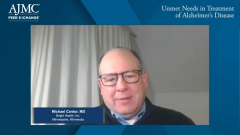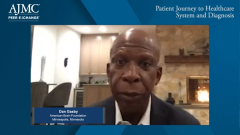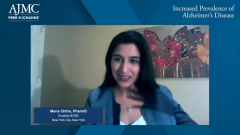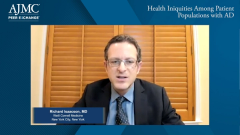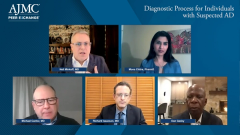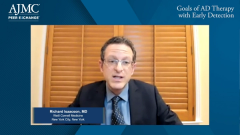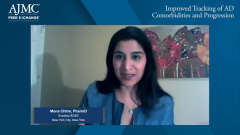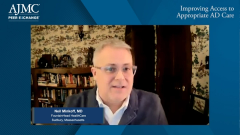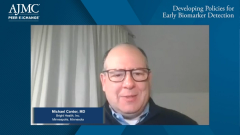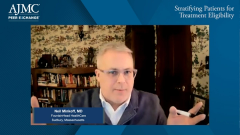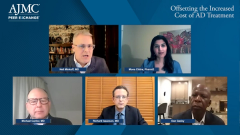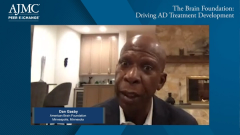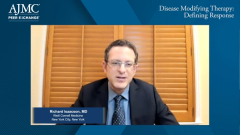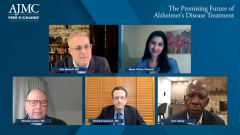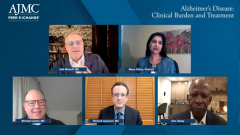
Unmet Needs in Treatment of Alzheimer Disease
A discussion on the various unmet needs in the treatment of Alzheimer disease.
Episodes in this series

Neil Minkoff, MD: Dr Cantor, I know you are a chief medical officer, so you work in population health, but you are also trained as a geriatrician. Maybe you could highlight some of the unmet needs, whether they are concerns about adherence or problems with quality of life. What are the unmet needs, both as a geriatrician and in your work in population health?
Michael Cantor, MD: Thanks, Neil. The challenge is that we have a lack of diagnostic tools like Dr Isaacson just said. Alzheimer disease is a progressive illness. Like in any other illness, the earlier you diagnose it and the earlier you treat it, the better off you are because you prevent a lot of the long-term complications as well as progression of the illness if you can get it early and start to make a difference before the toxic chemicals build up, as Dr Isaacson mentioned.
That is the big thing right now: How do we know who has this? How do we separate out people, like everyone as they get older, whose brains change a little, and they potentially start to feel as if they have memory issues. Maybe they do, or maybe they are just stressed. Right now, there is no simple, straightforward way for me to know whether that is early Alzheimer disease or if it is that the patient is overwhelmed and stressed out and cannot focus on things, or it may be both. It is important to recognize that the future will be about that early diagnosis and early intervention because without the early diagnosis, you cannot get to early intervention.
What happens is that we see people, but we do not have a good test, whether that is an imaging study, a blood test, or another way of figuring out who actually has Alzheimer disease. There is a lot, coupled with the fact that there is still a major stigma. As Dr Isaacson said, this is a devastating illness. Not only is it devastating for that person, but their whole family suffers from their loss of who they are as well. Elie Wiesel said that “dementia is cancer of the personality.”
The sooner we intervene and identify people, the sooner we can tell people, “It is OK to admit that you have this.” Or the sooner you notice that your loved one is not who they used to be, then the sooner we can begin treatments, whether this is therapies that delay the progression, some of which we have today. For others, living a healthy lifestyle makes us healthy in not only our brains but also in our hearts, our kidneys, and the rest of our body. It is about figuring out how we get to that early diagnosis and then that early treatment.
Without that, the current situation is hard. It is hard for the people who have these issues with their thinking processes, it is hard for their families, and it is hard for the community to know what to do when people start acting different from how they did before. Because this illness tends to affect people in the prime of their lives when they have had very successful lives, whether it is raising families, working a job, or building a community, whoever they are, this comes along just at the time that they have accomplished many goals. We see them begin to wither away, and it is a terrible problem that leads to everything from social isolation and depression to challenges with staying in the community and staying safely at home. All those problems stem from a lack of early diagnosis and early effective treatment options.
Transcript edited for clarity.
Newsletter
Stay ahead of policy, cost, and value—subscribe to AJMC for expert insights at the intersection of clinical care and health economics.
